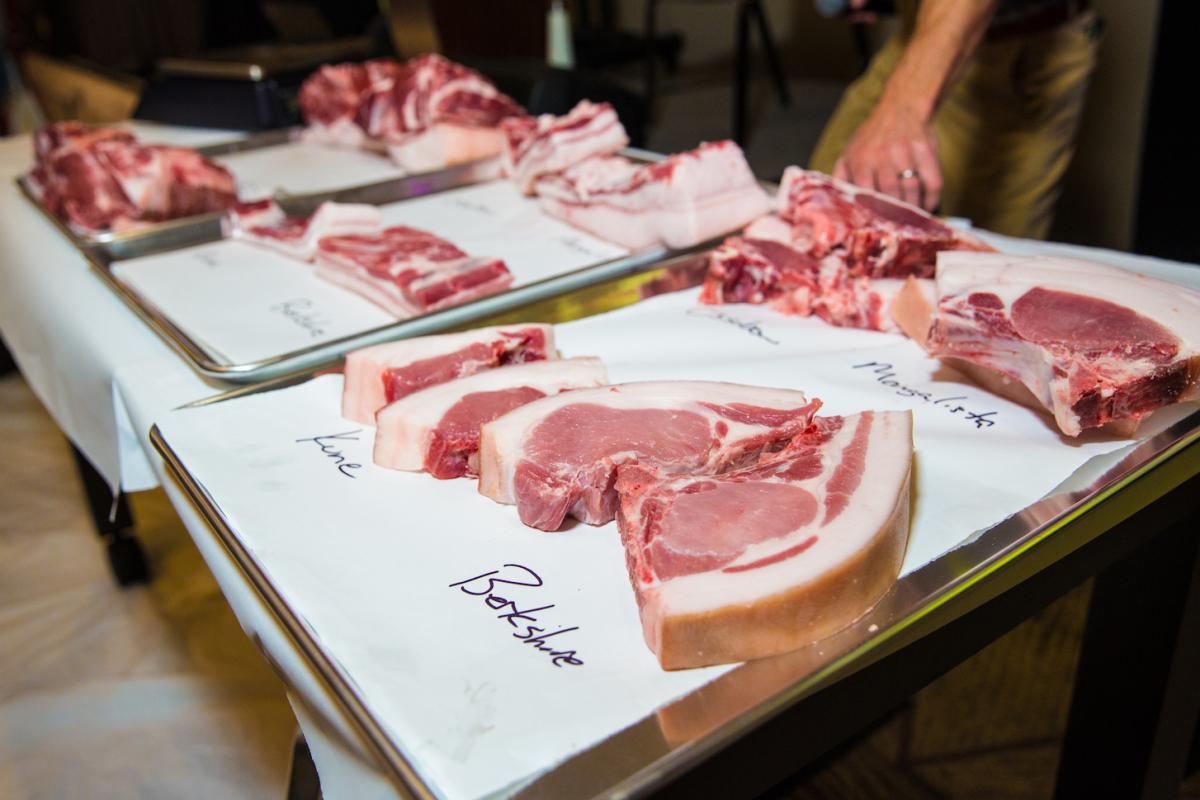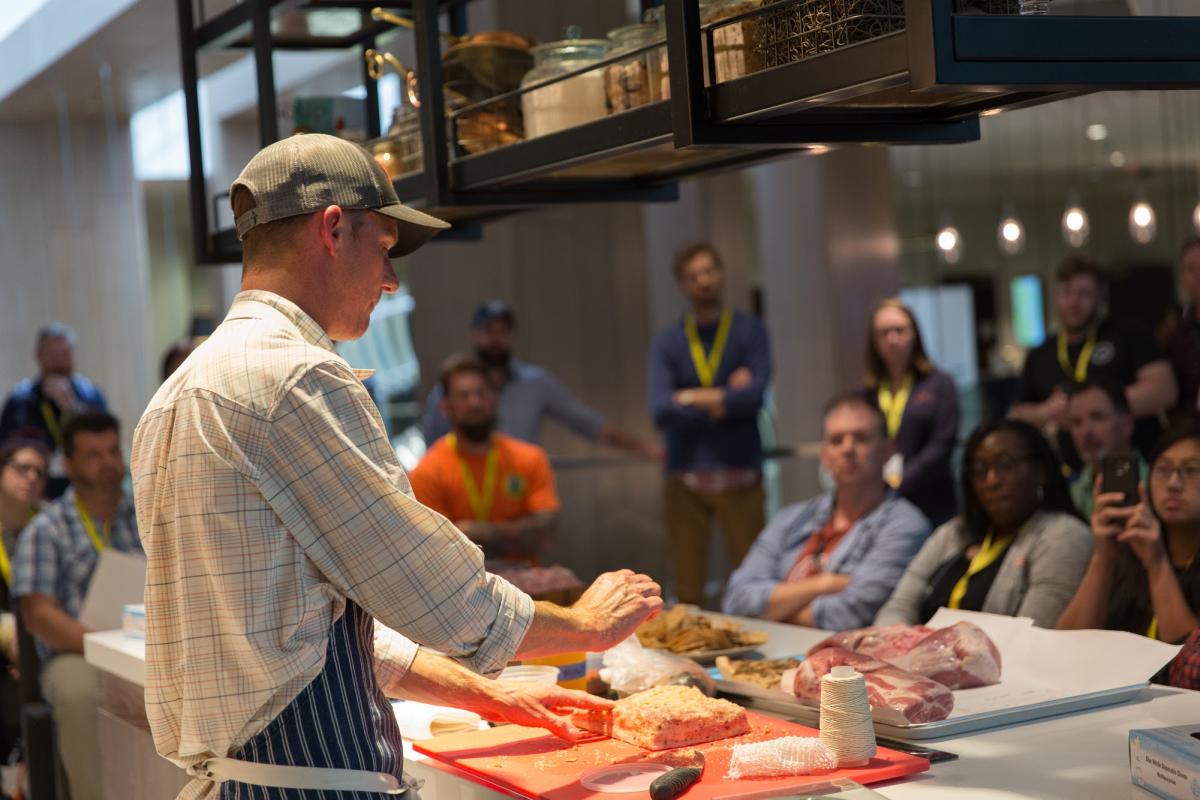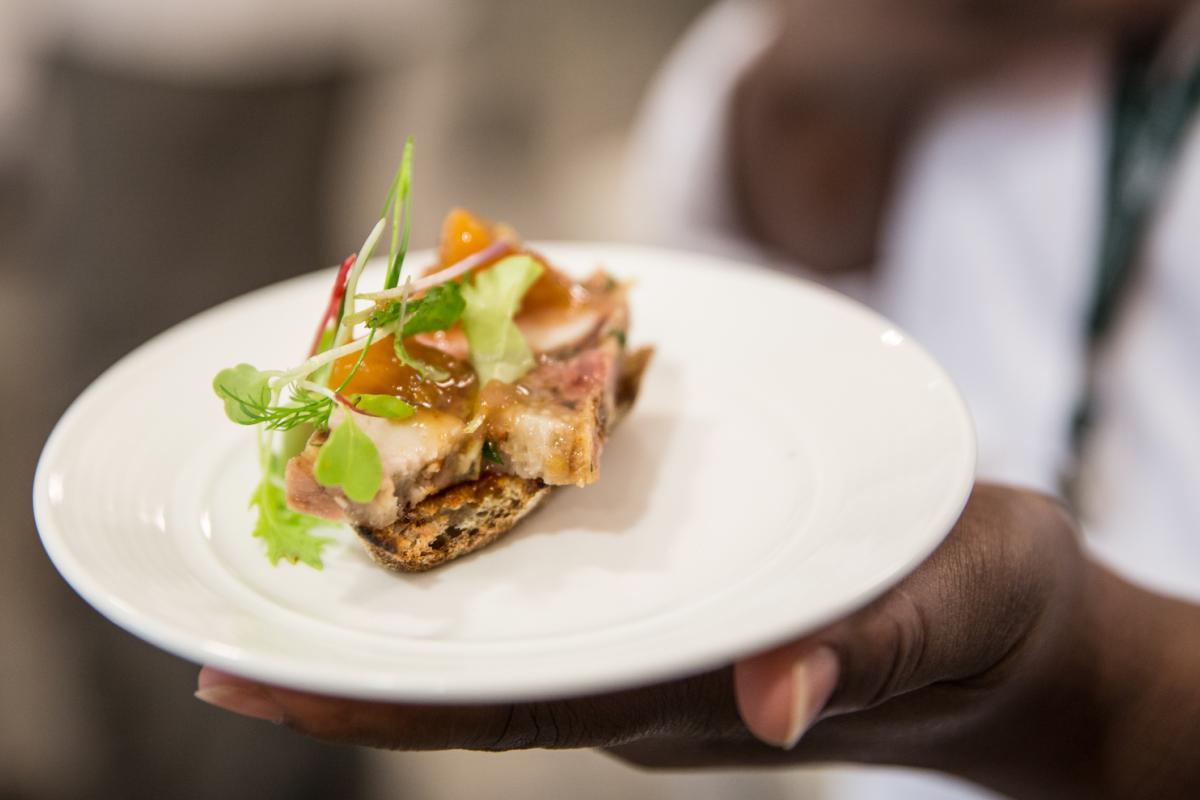Reflections of the Carolina Meat Conference
By: Olivia Olsher
I am a sophomore studying environmental science and policy at Duke University. My interests in sustainable agriculture started after I spent my junior year summer learning and writing about pollinators. The fate of global agriculture is heavily dependent on the health of pollinators, yet industrial food production utilizes deadly chemicals that endanger the very insects that sustain high crop yields. This dysfunctional relationship between pollinators and large-scale agriculture prompted me to explore alternative methods of food production. This year, I am a part of the Duke Campus Farm student crew and a member of the Bass Connections team exploring the possibilities of Regenerative Cattle Grazing as a means of mitigating the impacts of Climate Change.
Regenerative Grazing entails the rotational grazing of beef cattle on pastures. Keeping cattle on the land for just the right amount of time has been shown to increase the organic matter in the soil, enabling it to sequester more carbon and also become more drought and flood resistant. Recent studies have found that global soils have the potential to sequester at least 10% of global anthropogenic emissions (Hansen et al, 2013). Hence, regenerative grazing is a promising new method of sustainable agriculture that promotes improved animal welfare standards while having the potential to also stabilize agroecosystems and empower small-scale farmers. Not to mention, the meat produced by pasture-raised beef contains more nutrients and less saturated fat than conventional corn-fed beef. My Bass Connections team is currently collecting information about all aspects of Regenerative Grazing. We are working to amass enough collective expertise on the subject to develop a pilot carbon offset protocol for pasture-based rotational grazing systems in NC and establish methods of monitoring soil carbon. We also hope to be in a position to recommend policy changes at the state and national levels to promote on-farm practices that improve soil and transform small-scale farms into carbon sinks, and develop educational materials that facilitate producer adoption of regenerative grazing systems.
Over fall break, some Bass Connections team members, including Leslie Wolverton (Duke Campus Farm Field Education Manager), attended the NC Choices Carolina Meat Conference in Charlotte, NC. Nearly every part of the meat supply chain was represented at this conference, including farmers, ranchers, chefs, butchers, government officials and industry leaders. A variety of class sessions were held over 2-days covering topics ranging from environmental resilience to how animal stress affects meat quality, to butchering tutorials for grass-fed beef. My favourite class session was on how animals stress and well-being impact meat quality, presented by two meat scientists from Akansas and Kentucky. My main takeaway from this session was that animal welfare directly impacts meat quality, thus solidifying my convictions that humane meat production is in the interest of meat producers and consumers. This session also highlighted some of the challenges surrounding access to small-scale slaughterhouses and the economic and environmental detriment caused by the centralization of an industrialized slaughter system in the US.
After a long Sunday spent talking about beef, the conference go-ers were bussed to the Charlotte Botanical Gardens to enjoy a food festival. Never have I seen so many food stalls in one place! After gorging ourselves on the smorgasbord of samples (from donuts to gourmet ice pops to empanadas and BBQ everything), we returned to the hotel with our heads and stomachs perhaps slightly over-stuffed.
My main take-aways from the conference were related to consumer behaviour, equity and persisting gaps in scientific knowledge concering regenerative grazing. Consumers still care more about meat taste and affordability than environmental impacts and animal welfare. Thus, our Bass Connections team will need to think carefully about marketing strategies for regenerative grazed beef. Moreover, we must acknowledge and act on the importance of empowering farmers that are members of minority groups to give them a stake in the regenerative grazing market. Finally, there is a huge gap in scientific knowledge in areas such as measuring soil carbon and the health benefits of pasture-raised beef.
The knowledge we acquired from this conference will contribute to many aspects of our Bass Connections project and served to highlight areas of investigation we may have neglected. It was certainly very interesting to learn about the perspectives of cattle farmers and beef industry advocates. While sitting through meat butchering tutorials and talks on slaughtering methods was personally challenging as a vegetarian, it also pushed me to embrace the perspectives of meat-eaters and gain an appreciation for the innovation and genuine intentions of many actors in the meat industry.




